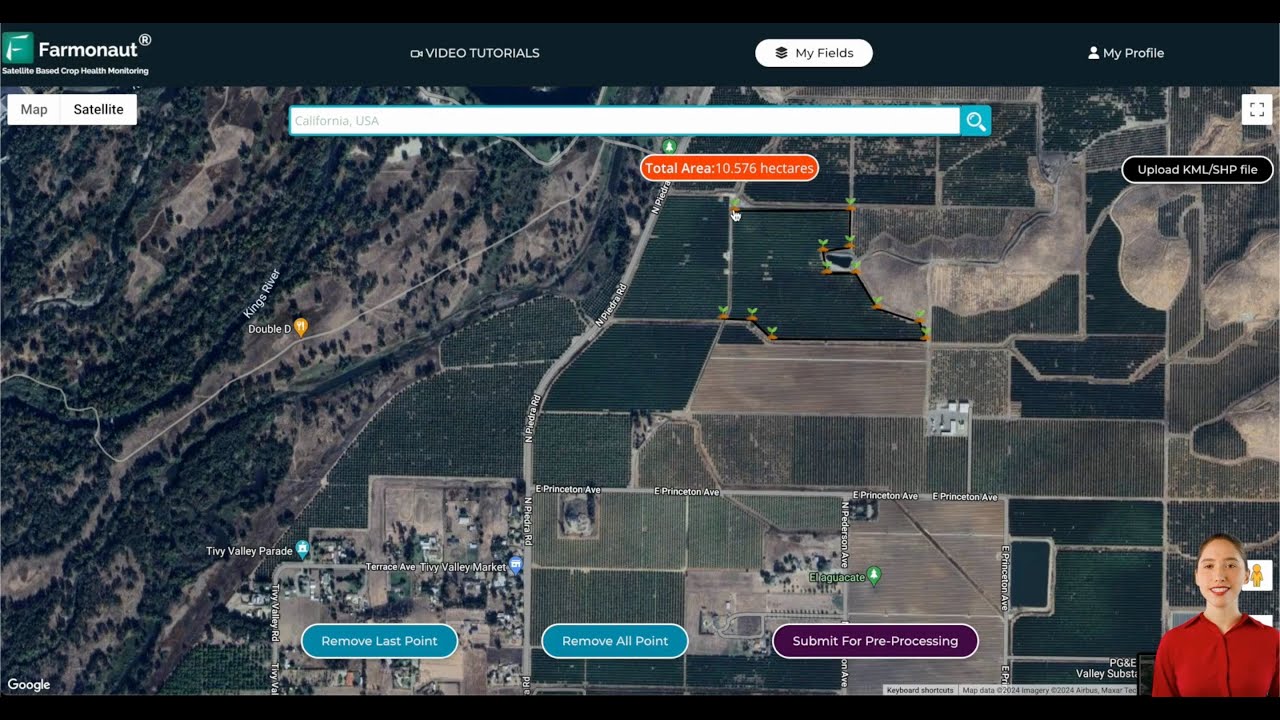Florida’s Immigration Debate: Analyzing the Impact on Agriculture and State Enforcement in 2023
“Florida’s proposed $500 million immigration bill aims to enhance cooperation between state, local, and federal authorities.”
In the heart of Tallahassee, Florida, a contentious debate is unfolding that has far-reaching implications for the state’s approach to immigration, law enforcement, and agriculture. As we delve into this complex issue, we’ll explore the various facets of the proposed legislation and its potential impact on Florida’s diverse communities and industries.
The Florida Immigration Bill Controversy: An Overview
The proposed $500 million immigration bill in Florida has ignited a fierce debate among lawmakers, state officials, and the public. At the center of this controversy is a clash between Governor Ron DeSantis and Republican state lawmakers over the bill’s provisions and potential consequences.
Key aspects of the bill include:
- Enhanced cooperation between state, local, and federal authorities
- Increased penalties for undocumented immigrants committing crimes
- Transfer of immigration oversight from the governor’s office to the agriculture commissioner
- Stricter enforcement of E-Verify law compliance
This legislative proposal reflects broader GOP divisions on immigration policy and raises questions about the balance between state and federal enforcement authority.

Governor DeSantis vs. State Lawmakers: A Growing Rift
During a recent roundtable in Palm Beach County, Governor Ron DeSantis vehemently opposed the proposed legislation, describing it as “very grotesque, weak… destructive.” His stance has created a significant rift within the Republican party, as many state lawmakers support the bill.
State Representative Toby Overdorf, a Republican from Palm City, defended the bill, stating that it would not diminish any police powers from the governor. He emphasized that the agriculture commissioner’s role would be that of a “clearing house” for coordinating immigration enforcement efforts.
The Controversial Transfer of Immigration Oversight
One of the most contentious aspects of the bill is the proposed transfer of immigration oversight from the governor’s office to Agriculture Commissioner Wilton Simpson. Governor DeSantis has called this move “ridiculous,” arguing that it undermines the strategies already in place under his leadership.
However, Representative Overdorf counters that the state lacks deportation authority but maintains law enforcement capabilities. He asserts, “We are not doing ‘catch-and-release’… we are doing ‘catch-and-wait’ for the federal government.”
E-Verify Law Compliance: A Growing Concern
“Recent non-compliance letters for E-Verify law were issued to businesses in Florida, highlighting enforcement efforts.”
The Florida Department of Commerce has recently issued non-compliance letters to 40 businesses, indicating potential violations of Florida’s E-Verify Law. This law requires companies with over 25 employees to verify the employment eligibility of new hires.
This development underscores the state’s commitment to enforcing immigration laws and highlights the challenges businesses face in complying with these regulations.
Impact on Agriculture and Labor
Florida’s agricultural sector, a cornerstone of the state’s economy, stands to be significantly affected by the proposed immigration legislation. The industry relies heavily on immigrant labor, both documented and undocumented, to maintain its productivity and competitiveness.
Potential impacts on agriculture include:
- Labor shortages due to stricter enforcement
- Increased operational costs for farms and agribusinesses
- Challenges in seasonal labor recruitment
- Potential disruptions to food supply chains
As the agricultural sector grapples with these challenges, innovative solutions like those offered by Farmonaut become increasingly important. Farmonaut’s satellite-based farm management solutions can help farmers optimize their operations and mitigate some of the labor-related challenges they may face.

State vs. Federal Immigration Enforcement
The proposed legislation in Florida raises important questions about the balance between state and federal authority in immigration enforcement. While immigration policy is primarily a federal responsibility, states like Florida are increasingly seeking to play a more active role in enforcement.
Key considerations in this debate include:
- Constitutional limitations on state authority in immigration matters
- Potential conflicts between state and federal law enforcement agencies
- The impact on community-police relations and public safety
- Legal challenges to state-level immigration enforcement measures
Public Response and Protests
The proposed immigration bill has sparked significant public outcry, with protesters gathering outside the Capitol to voice their opposition to ICE arrests and immigration directives. These demonstrations highlight the deep divisions within Florida’s communities over immigration policy.
Public concerns include:
- Fear of increased racial profiling
- Potential separation of families due to deportations
- Economic impact on industries reliant on immigrant labor
- Erosion of trust between immigrant communities and law enforcement
The Role of Technology in Modern Agriculture
As Florida grapples with these immigration challenges, the importance of technological innovation in agriculture becomes increasingly apparent. Companies like Farmonaut are at the forefront of this revolution, offering solutions that can help farmers adapt to changing labor landscapes.
Farmonaut’s satellite-based crop health monitoring and AI-driven advisory systems can significantly improve farm productivity and efficiency, potentially offsetting some of the labor challenges posed by stricter immigration policies.


Key Components of Florida’s Immigration Bill 2023
| Component | Description | Potential Impact |
|---|---|---|
| $500 Million Budget | Allocation of funds for immigration enforcement and related initiatives | Increased resources for law enforcement, potential strain on state finances |
| Enhanced State-Federal Cooperation | Improved coordination between state, local, and federal authorities | More efficient enforcement, potential conflicts in jurisdiction |
| Increased Penalties for Undocumented Immigrants | Harsher punishments for crimes committed by undocumented individuals | Potential deterrent effect, concerns about civil rights violations |
| Transfer of Immigration Oversight | Shift of authority from governor’s office to agriculture commissioner | Changes in enforcement priorities, potential political conflicts |
| E-Verify Compliance | Stricter enforcement of employment eligibility verification | Challenges for businesses, potential reduction in undocumented workforce |
The Future of Florida’s Immigration Policy
As discussions continue in speaker chambers, the future of Florida’s immigration policy hangs in the balance. The outcome of this debate will have far-reaching consequences for the state’s economy, social fabric, and political landscape.
Key factors that will shape the future include:
- The resolution of conflicts between the governor and state lawmakers
- Legal challenges to the proposed legislation
- Federal response and potential changes in national immigration policy
- Economic impacts on key industries, particularly agriculture
- Public opinion and voter sentiment in upcoming elections
The Role of Technology in Addressing Agricultural Challenges
As Florida navigates these complex immigration issues, the role of technology in supporting the agricultural sector becomes increasingly crucial. Innovative solutions like those offered by Farmonaut can help farmers adapt to potential labor shortages and improve overall efficiency.
Farmonaut’s suite of tools includes:
- Satellite-based crop health monitoring
- AI-driven advisory systems for farm management
- Resource optimization tools
- Weather forecasting and risk assessment capabilities
By leveraging these technologies, farmers can make data-driven decisions, optimize resource usage, and potentially mitigate some of the challenges posed by changing labor dynamics.
For developers interested in integrating these advanced agricultural technologies into their own systems, Farmonaut offers a robust API. Detailed documentation for the API can be found in the API Developer Docs.
Economic Implications of Florida’s Immigration Policy
The proposed immigration legislation has significant economic implications for Florida, particularly in sectors heavily reliant on immigrant labor. These impacts extend beyond agriculture to industries such as construction, hospitality, and healthcare.
Potential economic effects include:
- Labor shortages in key industries
- Increased wages due to reduced labor supply
- Higher consumer prices for goods and services
- Potential reduction in state tax revenues
- Impacts on real estate markets and property values
As businesses adapt to these changes, the need for innovative solutions to improve efficiency and productivity becomes paramount. This is where technologies like those offered by Farmonaut can play a crucial role in helping industries, particularly agriculture, navigate these challenges.
Legal Challenges and Constitutional Considerations
The proposed Florida immigration bill is likely to face significant legal challenges, raising important constitutional questions about the balance of power between state and federal authorities in immigration matters.
Key legal considerations include:
- Preemption issues: Does the state law conflict with federal immigration law?
- Due process concerns: Are the rights of immigrants, both documented and undocumented, adequately protected?
- Equal protection challenges: Does the law disproportionately impact certain racial or ethnic groups?
- Fourth Amendment issues: Are the proposed enforcement measures constitutional?
These legal battles could potentially reach the Supreme Court, setting precedents for state-level immigration enforcement across the country.
The Human Impact: Communities and Families
Beyond the political and economic considerations, it’s crucial to consider the human impact of Florida’s proposed immigration legislation. Many families and communities in Florida include both documented and undocumented members, and the new law could have profound effects on their lives.
Potential human impacts include:
- Separation of families due to deportations
- Increased fear and anxiety in immigrant communities
- Reduced access to essential services, including healthcare and education
- Potential increase in unreported crimes due to fear of law enforcement
- Challenges for mixed-status families navigating daily life
As these human stories unfold, they will likely play a significant role in shaping public opinion and potentially influencing future policy decisions.
The Role of Local Law Enforcement
Florida’s proposed immigration bill places local law enforcement agencies in a challenging position. These agencies must balance their commitment to public safety with the new requirements for cooperation with federal immigration authorities.
Key challenges for local law enforcement include:
- Balancing community trust with new enforcement responsibilities
- Training officers on new immigration enforcement protocols
- Managing resource allocation between immigration enforcement and other public safety priorities
- Navigating potential conflicts between state and federal directives
The success of the new immigration policies will largely depend on how effectively local law enforcement agencies can implement these changes while maintaining community relationships and ensuring public safety.
The Future of Agriculture in Florida
As Florida’s immigration debate continues, the future of the state’s agricultural sector remains uncertain. The industry, which has long relied on immigrant labor, may need to adapt to a new reality of stricter enforcement and potential labor shortages.
Potential adaptations for Florida’s agriculture industry include:
- Increased mechanization and automation of farming processes
- Adoption of precision agriculture techniques to improve efficiency
- Shifts in crop choices to less labor-intensive options
- Development of new labor recruitment strategies
- Increased wages and benefits to attract domestic workers
In this changing landscape, technologies like those offered by Farmonaut become increasingly valuable. By providing advanced satellite-based farm management solutions, Farmonaut can help Florida’s farmers optimize their operations and navigate the challenges posed by potential labor shortages.
Conclusion: A Complex Issue with Far-Reaching Implications
Florida’s immigration debate is a complex issue that touches on fundamental questions of law, economics, and human rights. As the state grapples with these challenges, it’s clear that there are no easy solutions.
The outcome of this debate will have far-reaching implications not just for Florida, but potentially for immigration policy across the United States. As we move forward, it’s crucial to consider all aspects of this issue, from the economic impacts on industries like agriculture to the human costs for immigrant families and communities.
While technology cannot solve all the challenges posed by this complex issue, innovations in fields like precision agriculture can help mitigate some of the potential impacts. As Florida charts its course on immigration policy, the role of companies like Farmonaut in supporting key industries will likely become increasingly important.
As this debate continues to unfold, we’ll be closely monitoring developments and providing updates on how these policy changes may affect various sectors, particularly agriculture. Stay tuned for more in-depth analysis and insights on this critical issue.
FAQ Section
Q: What are the main components of Florida’s proposed immigration bill?
A: The bill includes a $500 million budget for enforcement, enhanced state-federal cooperation, increased penalties for undocumented immigrants committing crimes, transfer of immigration oversight to the agriculture commissioner, and stricter E-Verify compliance.
Q: How might this bill affect Florida’s agricultural sector?
A: The bill could lead to labor shortages, increased operational costs, challenges in seasonal labor recruitment, and potential disruptions to food supply chains in the agricultural sector.
Q: What is the role of local law enforcement in this proposed legislation?
A: Local law enforcement agencies would be required to cooperate more closely with federal immigration authorities, potentially changing their relationship with immigrant communities.
Q: How does this bill reflect broader debates about state vs. federal authority in immigration matters?
A: The bill represents an attempt by Florida to take a more active role in immigration enforcement, raising questions about the balance between state and federal authority in this area.
Q: What are some potential economic impacts of this legislation?
A: The bill could lead to labor shortages in key industries, increased wages due to reduced labor supply, higher consumer prices, and potential reductions in state tax revenues.
Q: How might technology help address some of the challenges posed by this legislation?
A: Technologies like those offered by Farmonaut, including satellite-based crop monitoring and AI-driven farm management tools, can help improve agricultural efficiency and potentially mitigate some labor-related challenges.
Earn With Farmonaut
Earn 20% recurring commission with Farmonaut’s affiliate program by sharing your promo code and helping farmers save 10%. Onboard 10 Elite farmers monthly to earn a minimum of $148,000 annually—start now and grow your income!
For more information about this exciting opportunity, visit our Affiliate Program page.
Farmonaut Subscriptions
As we conclude this comprehensive analysis of Florida’s immigration debate and its impact on agriculture and state enforcement in 2023, we invite you to explore how Farmonaut’s innovative solutions can help address some of the challenges facing the agricultural sector. Whether you’re a farmer looking to optimize your operations or a developer interested in integrating advanced agricultural technologies, Farmonaut has the tools and expertise to support your needs.

















